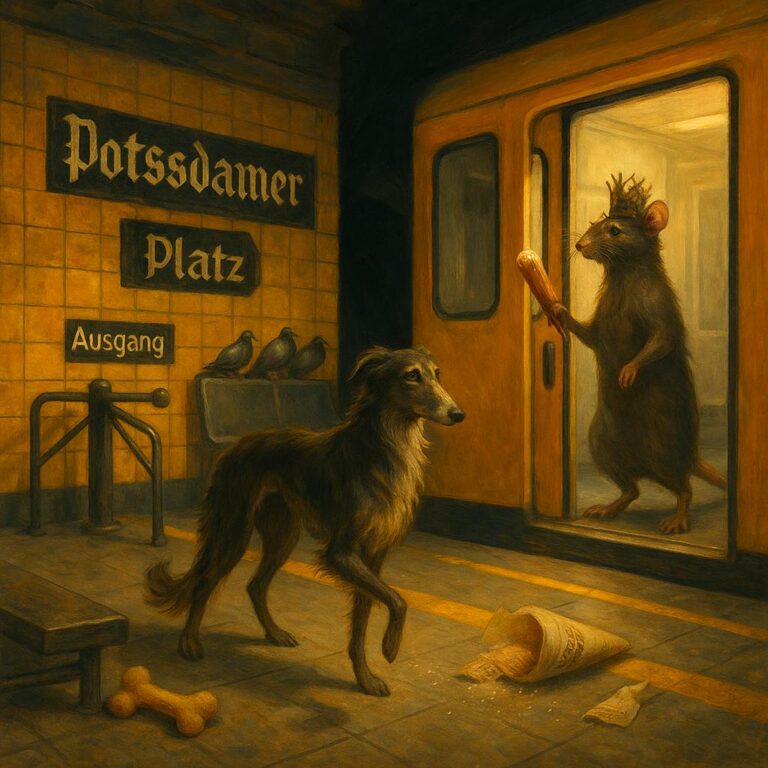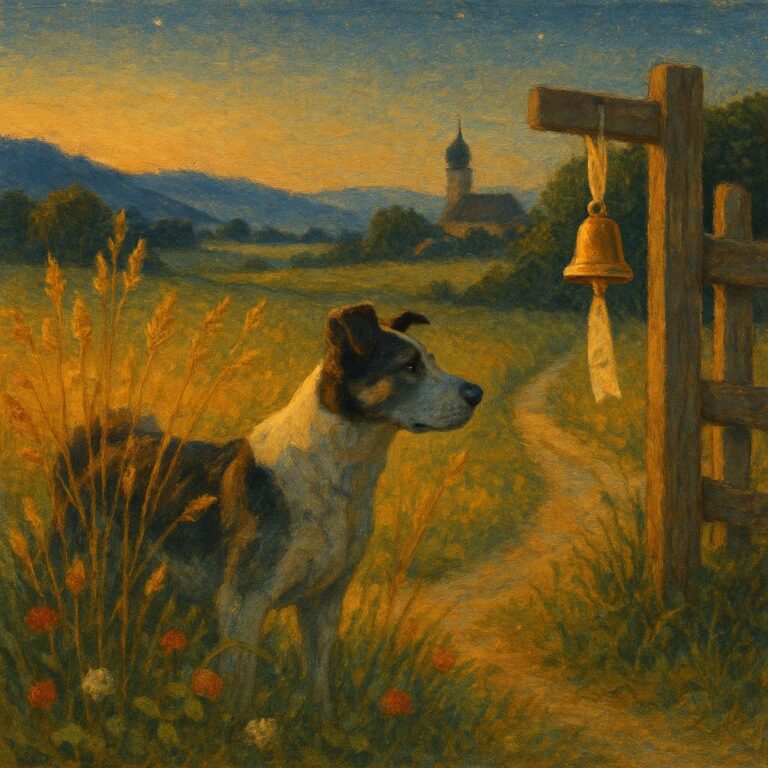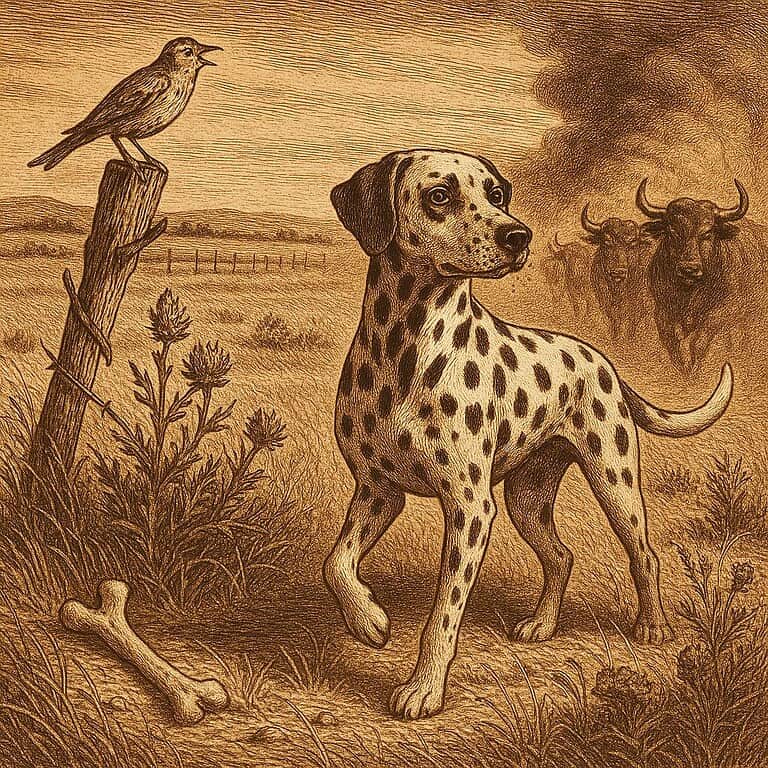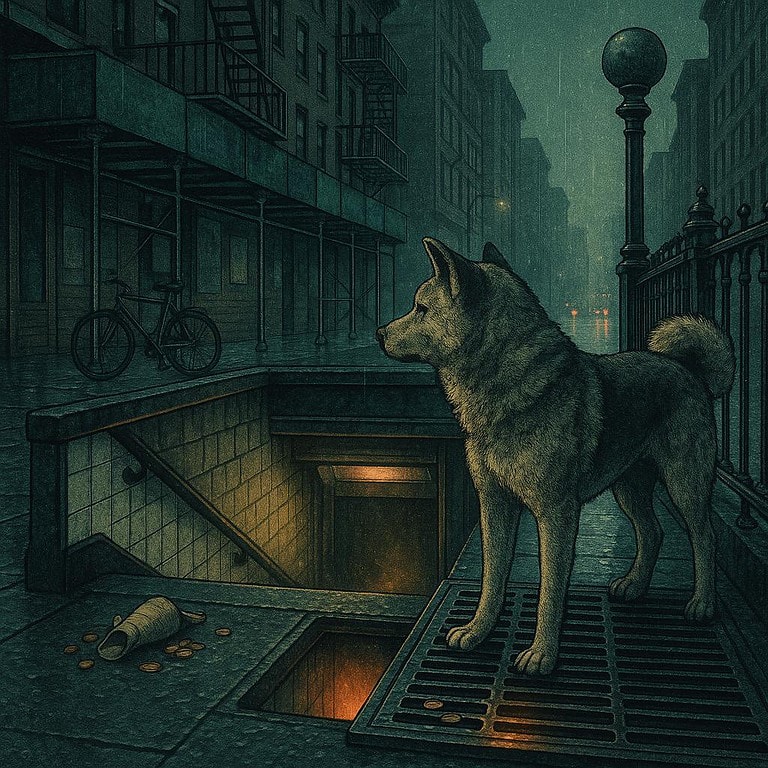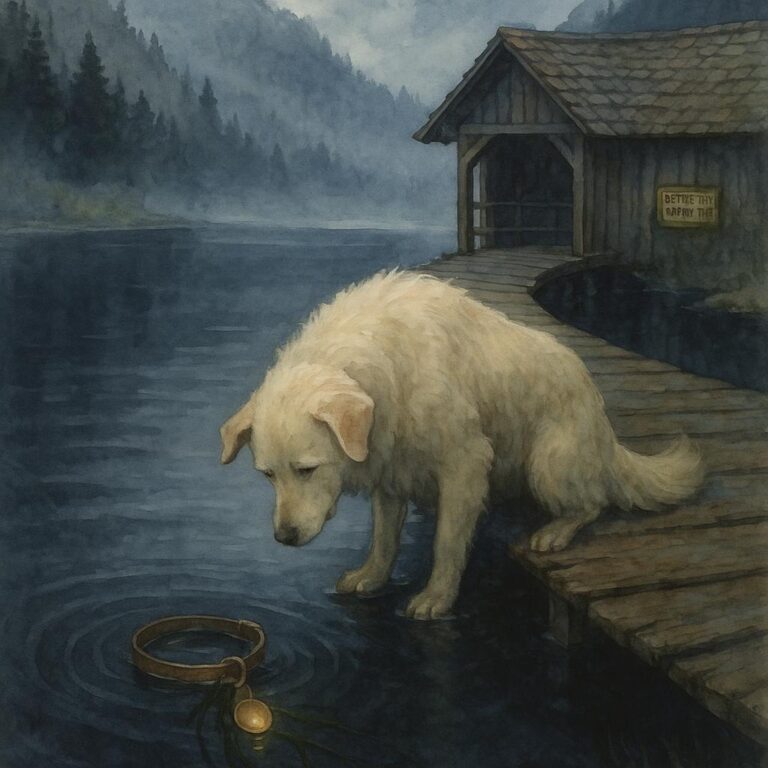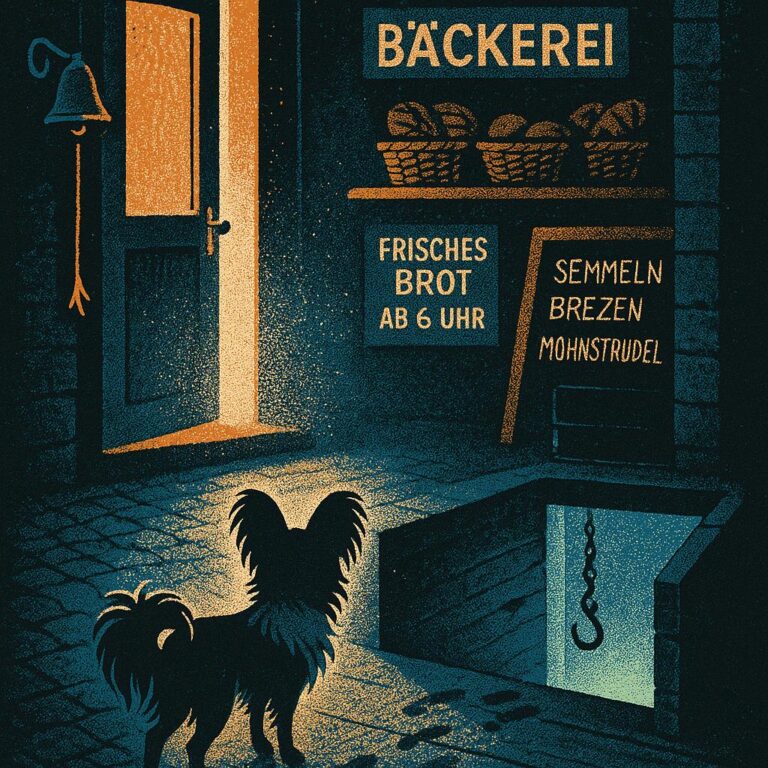Broadway Shepherd

Pigeons always underestimated Archie, a fifteen-year-old Australian Shepherd, but the big city was his woolly flock. He herded taxis with a glare, guided his human through crosswalks like a seasoned traffic cop, and sniffed bagels with focus. Today, a rogue hot dog cart broke free on Broadway, hurtling downhill, mustard waving like a flag. Archie’s hips clicked, but his brain barked move. He paced out an old dance, angled for the wheel, and saw his human step off the curb, oblivious. Archie sprang, teeth to handle, as a shadow leapt beside him and the cart veered toward subway stairs.
The cart bucked, wheels skittering, metal crying out as it kissed concrete. Archie’s jaw burned with the taste of rust and sweet ketchup. He felt the city under his pads—the slight dip before the subway stairs, the pull of gravity begging him to let go. He squared his shoulders and leaned, hips complaining, brain counting the beat: left, right, pressure, hold. Move the nose. Never chase the rump.
The shadow was a dog. Soot-slick and long-legged, he came out from behind a mailbox like a thrown idea, shoulder to the far wheel. No collar, city dirt on his chest, the loose confidence of someone who knew alleys better than lawns. They didn’t speak. They didn’t need to. Archie shifted his grip, and the shadow took the angle, pressing hard until the cart’s path shaved past the stair mouth with a breath to spare.
“Hey! My cart!” the vendor’s shout blew down the block, hot with accents and steam.
Someone screamed. A horn bored a hole through the afternoon. Archie’s human stood frozen at the curb, one shoe in the gutter, eyes saucer-wide, bag of dry cleaning bumping against a knee. Archie saw the fabric, the winged logo, the slow blink. He leaned again. The cart slewed. The bottom plate clipped a steel railing, spit mustard like confetti, and tilted into the swell of trash bags at the curb. They embraced it with a wet shudder, swallowing the worst of the momentum. A single frank rolled free, found a grate, and disappeared into the underworld with a theatrical sigh.
The street exhaled. The shadow dog skidded back, shook grease from his chest, and looked at Archie with a grin that flashed like a subway light: good line, old man.
Archie let go. His mouth quivered with fatigue, strings of mustard bead-and-threading his whiskers. His teeth whispered complaint to his gums; his hips broadcast each step. The vendor reached them first, breathless, apron flapping. He planted his hands on his knees, saw the mess, saw the dogs, and then he laughed—a noise like a kettle letting off steam. He tore a roll, soft and warm, and stuffed it with meat that hadn’t touched the ground. He crouched low and offered it down.
“For the cop,” he said, and Archie took it very gently, managing not to smear the man more than necessary. The shadow dog hung back, tail windmilling, then hopped forward when a second bun appeared. He gulped it sideways and made a happy chuff.
Archie’s human finally uncorked, stumbling across the street with the kind of sounds humans make when something almost took them away and then decided not to. Hands in his fur, forehead to forehead, breath shaking. “Arch,” they said into his ruff. “Jesus, Arch.” He felt the words soak in, warm and old and right, and he pushed his nose into their sleeve, finding the salt there like always.
Pigeons arrived in their gray suits, a rolling, beaded audience. Usually they played dumb, letting him herd them for the joy of their own insolence. Today they landed just out of his breath, heads ticking, and didn’t cluck. One stepped closer, dropped a feather near his paw, then walked away like the city’s tiniest diplomat. Archie accepted the treaty.
Sirens muttered blocks away and then thought better of it. The vendor wrestled his cart upright and patted its bent side with something like affection. A bike courier swore poetically. The shadow dog licked mustard off Archie’s cheek, then flinched at his own boldness and did it again, slower, like claiming a small piece of the moment.
“You two,” Archie’s human said, pointing from one to the other as if deputizing them. “You absolute lunatics.” They scratched the shadow dog behind the ear until his eyes rolled back in bliss, and for an instant he didn’t look like a shadow at all.
They parted the way teammates do. The shadow melted back toward the mailbox, paused, and glanced over his shoulder. Archie gave him a serious nod—big circles, small circles, you mind the gaps; I’ll mind the crossings—and the shadow understood, or pretended to, which is almost the same thing in a city.
They walked then, because that’s what you do after you don’t die: you walk. Past the deli with the cat in the window, past a woman singing to her baby in a language that sounded like rain on tin, past a man teaching his kid to tie a shoe on a fire hydrant. The bagel place let out a gust of crusty air and sesame seeds. Archie’s hips clicked like small metronomes, but the song they kept was steady. He checked the edges of things because that was his job—edges of curbs, edges of crowds, edges of danger—and found them sitting where they were supposed to be.
At their stoop, his human sat on the bottom step. Archie sank beside them with a bulldozer sigh, the city’s grit and music settling into his fur. A smear of mustard yellowed his white blaze like a war stripe. His human licked their thumb and made a mess of cleaning it, gave up, and kissed the spot instead.
On the block, the pigeons resumed their hustle, and the vendor’s cart creaked away with a new wobble and a story to tell. The shadow dog was already gone, but the space he’d occupied felt claimed—folded into Archie’s map of the neighborhood, filed under good help.
The light softened. Bus brakes sighed like sheep. Archie let his head slide onto a warm knee. He blinked slow, counting without thinking: cabs in pairs, couples in threes, seven pigeons on the lamppost, one human heartbeat under his ear. Broadway kept flowing, but it flowed around him, not over him. For once, the flock held where he’d put it.
He closed his eyes. In the dark behind them, hills rose where buildings had been. A wind that used to live far away ruffled the coats of a thousand wooly things, and the old dance started up again, easy as breathing. When a siren pulled a long note through the afternoon, it sounded like nothing more than a far-off dog calling the world to order, and Archie, who already had, let himself rest.

